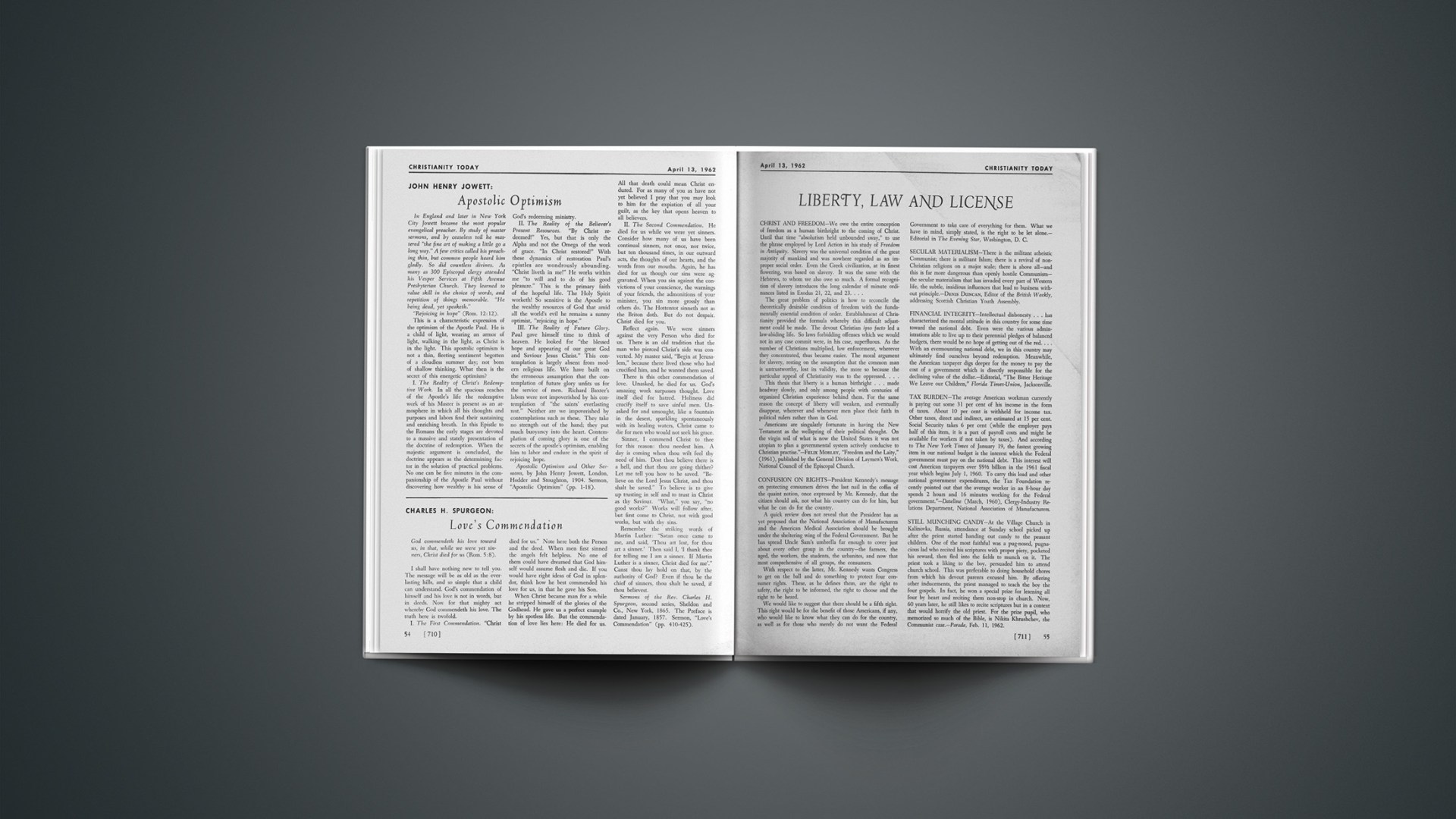In England and later in New York City Jowett became the most popular evangelical preacher. By study of master sermons, and by ceaseless toil he mastered “the fine art of making a little go a long way.” A few critics called his preaching thin, but common people heard him gladly. So did countless divines. As many as 300 Episcopal clergy attended his Vesper Services at Fifth Avenue Presbyterian Church. They learned to value skill in the choice of words, and repetition of things memorable. “He being dead, yet speaketh.”
“Rejoicing in hope” (Rom. 12:12).
This is a characteristic expression of the optimism of the Apostle Paul. He is a child of light, wearing an armor of light, walking in the light, as Christ is in the light. This apostolic optimism is not a thin, fleeting sentiment begotten of a cloudless summer day; not born of shallow thinking. What then is the secret of this energetic optimism?
I. The Reality of Christ’s Redemptive Work. In all the spacious reaches of the Apostle’s life the redemptive work of his Master is present as an atmosphere in which all his thoughts and purposes and labors find their sustaining and enriching breath. In this Epistle to the Romans the early stages are devoted to a massive and stately presentation of the doctrine of redemption. When the majestic argument is concluded, the doctrine appears as the determining factor in the solution of practical problems. No one can be five minutes in the companionship of the Apostle Paul without discovering how wealthy is his sense of God’s redeeming ministry.
II. The Reality of the Believer’s Present Resources. “By Christ redeemed!” Yes, but that is only the Alpha and not the Omega of the work of grace. “In Christ restored!” With these dynamics of restoration Paul’s epistles are wondrously abounding. “Christ liveth in me!” He works within me “to will and to do of his good pleasure.” This is the primary faith of the hopeful life. The Holy Spirit worketh! So sensitive is the Apostle to the wealthy resources of God that amid all the world’s evil he remains a sunny optimist, “rejoicing in hope.”
III. The Reality of Future Glory. Paul gave himself time to think of heaven. He looked for “the blessed hope and appearing of our great God and Saviour Jesus Christ.” This contemplation is largely absent from modern religious life. We have built on the erroneous assumption that the contemplation of future glory unfits us for the service of men. Richard Baxter’s labors were not impoverished by his contemplation of “the saints’ everlasting rest.” Neither are we impoverished by contemplations such as these. They take no strength out of the hand; they put much buoyancy into the heart. Contemplation of coming glory is one of the secrets of the apostle’s optimism, enabling him to labor and endure in the spirit of rejoicing hope.
Apostolic Optimism and Other Sermons, by John Henry Jowett, London, Hodder and Stoughton, 1904. Sermon, “Apostolic Optimism” (pp. 1–18).










